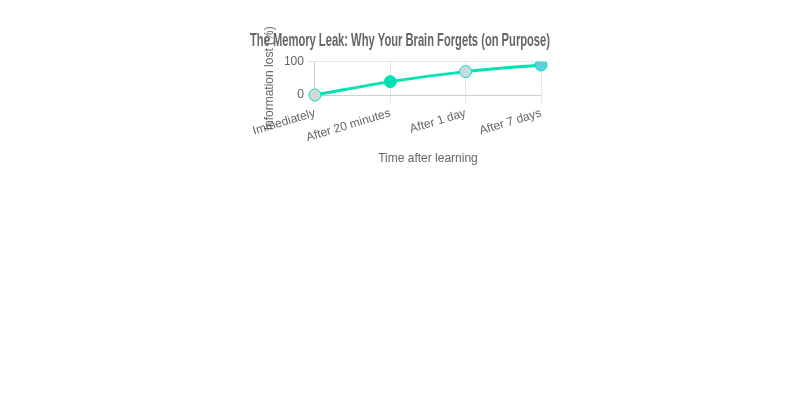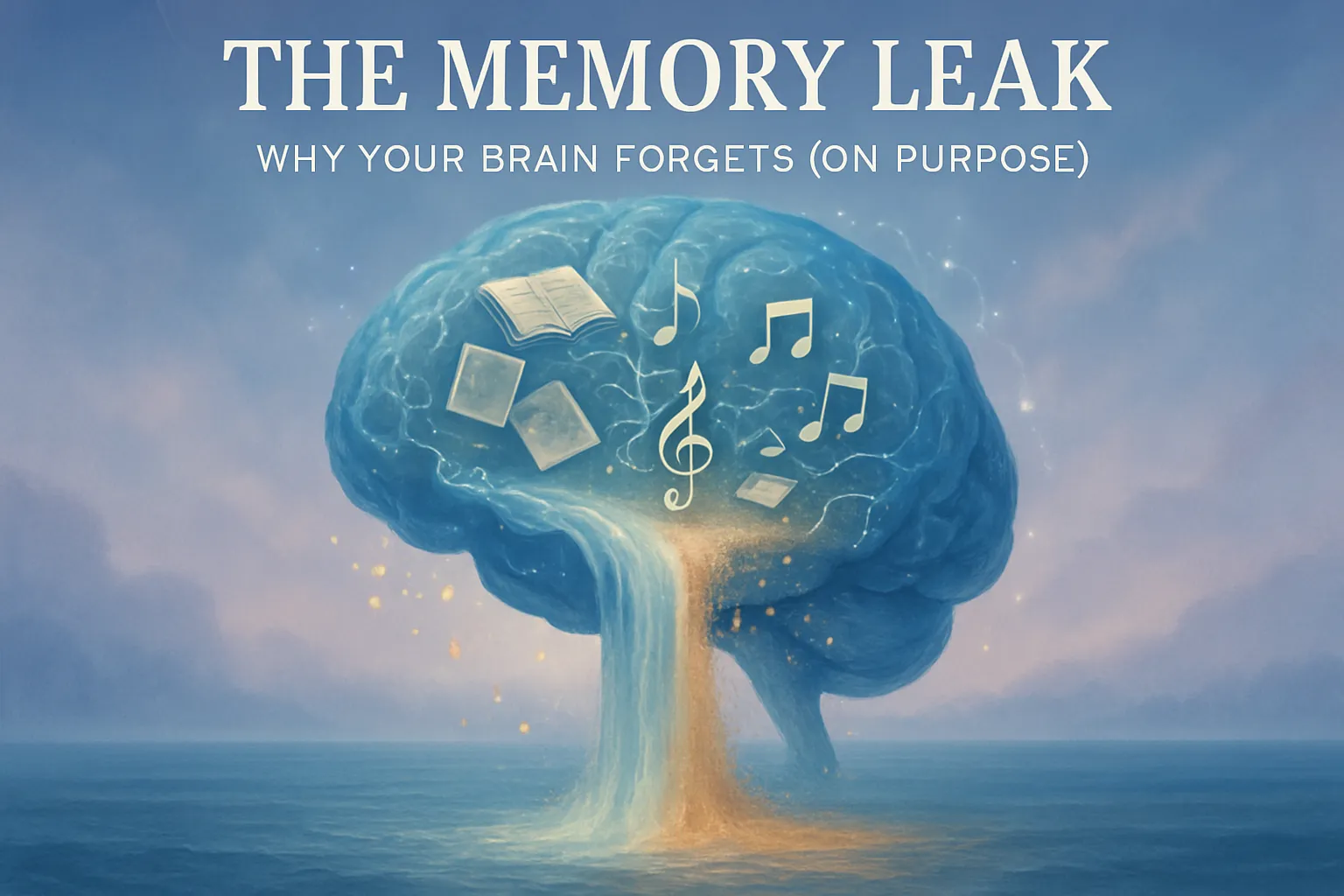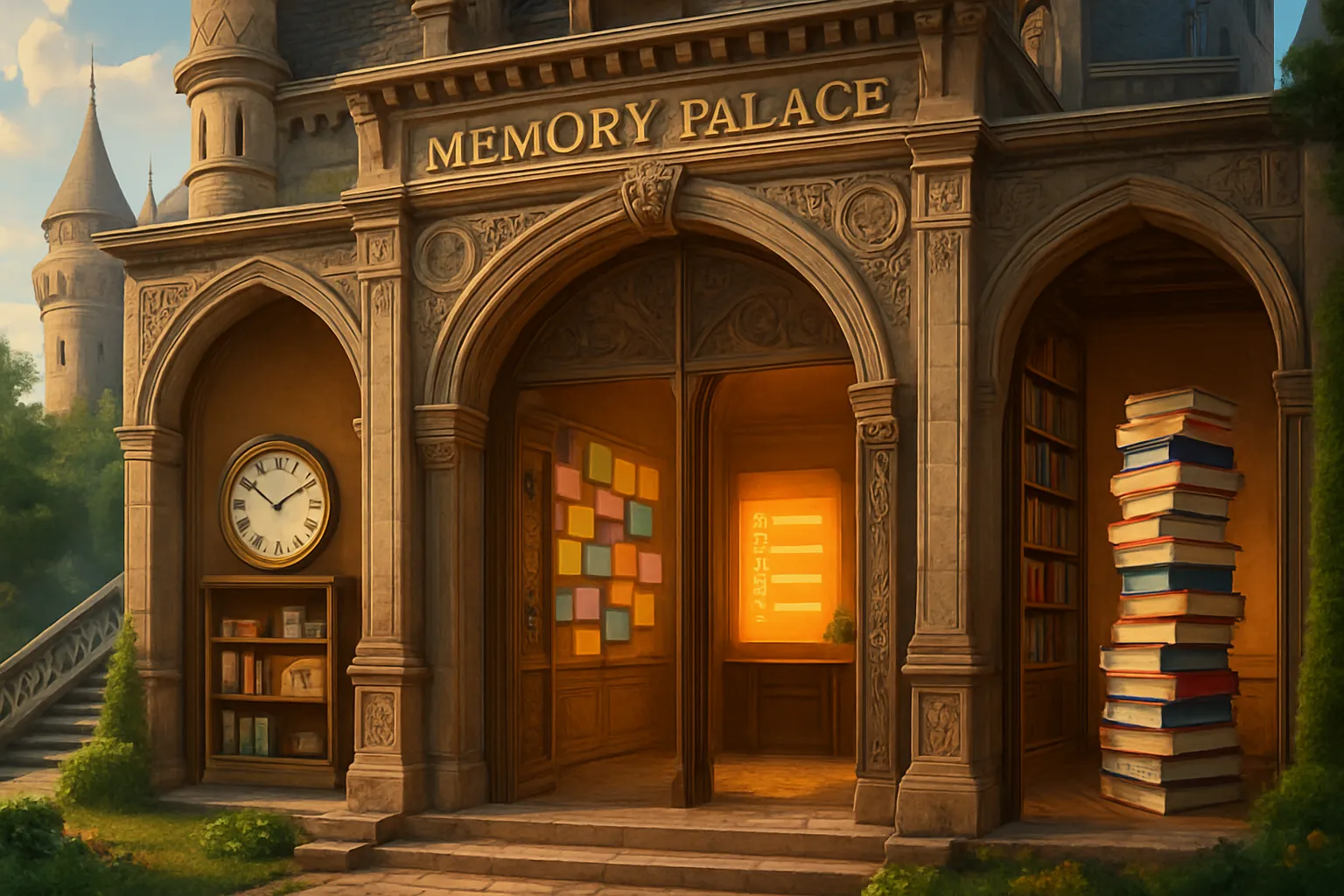Let’s get personal: I used to think I just had a terrible memory. The classic 'I forget names but not faces' routine—sound familiar? After misplacing my keys for the third time this week, I realized maybe it’s not just “getting older.” In this post, I’ll share the science and real-life moments (the embarrassing ones too) that made me rethink everything I knew about memory. Spoiler: it’s not just about willpower—and you can train your brain in surprisingly easy ways.

The Memory Leak: Why Your Brain Forgets (on Purpose)
Here’s something that blew my mind: most adults forget up to 90% of new information within just a week. When I first learned this, I was shocked. But it turns out, this “memory leak” isn’t a flaw—it’s actually a feature. Our brains are designed to forget, and for good reason.
Why We Forget So Fast: The Numbers
Let’s look at the stats:
- After 20 minutes: We lose about 40% of what we just learned.
- After a day: Up to 70% is gone.
- After a week: Only about 10-14% sticks around.
These numbers might sound scary, but they’re completely normal. Most memory loss isn’t a sign of brain decline or aging—it’s your mind protecting you from overload. In fact, memory decline aging is often misunderstood. Most of the time, it’s not that your brain can’t remember, it’s that it’s choosing not to.
Selective Forgetting: Your Brain’s Survival Strategy
Imagine if you remembered every face you saw, every phone number you heard, or every random fact you read online. You’d be overwhelmed in no time. So, your brain acts like an overzealous digital spring cleaning tool—it ruthlessly deletes what it thinks is unimportant. This is why you might forget someone’s name at a party, or what you had for lunch last month. If it’s not urgent or emotionally relevant, your brain lets it go.
Retroactive Interference: When New Memories Muddle the Old
Another big reason for memory loss is something called retroactive interference memory. This happens when new information crowds out older memories. For example, if you meet a lot of new people at work, you might struggle to remember names from last week because your brain is busy processing the new ones. It’s like trying to save too many files on your computer at once—some get overwritten.
So, when you can’t remember last month’s lunch, it’s not because your memory is failing. It’s because there’s just too much new stuff scrambling the signals. As one expert put it:
'It just means you might need to learn new techniques or you might need to be more deliberate with your memory.'
Technology’s Impact on Memory
Technology has made this “memory leak” even more noticeable. We now meet hundreds of people in a month—something that used to take a lifetime. Plus, we outsource so much to our phones: contacts, appointments, even birthdays. This makes our brains lazier about saving details, since we know we can always look them up later. If you’re searching for memory loss tips, one of the best is to be mindful about what you want to remember and practice recalling it—don’t just rely on your devices.
Everyday Forgetting Isn’t Failure
Forgetting names, appointments, or facts isn’t always a sign of memory decline aging. It’s often your brain’s way of saying, “This isn’t urgent.” We forget most things quickly unless they feel important or emotionally charged. So, next time you blank on a detail, remember: your brain is just doing its job, protecting you from information overload.

Stop Blaming 'Getting Older': Training Your Memory as You Age
Let’s get one thing straight: memory decline with aging is not inevitable. I’ve heard it a hundred times—“I’m just getting older, so my memory isn’t what it used to be.” But science tells a different story. Thanks to neuroplasticity, our brains can grow and adapt at any age—yes, even at 52 or beyond (I checked). The trick is to actively engage your mind, just like you would your muscles at the gym.
“When you go to the gym and you work out your muscles they get bigger. The brain is just the same with neuroplasticity.”
Physical Activity and Memory: Move Your Body, Sharpen Your Mind
Physical habits matter more than most people realize. Regular exercise isn’t just for your heart or waistline—it’s a proven memory improvement technique. The World Health Organization recommends at least 150 minutes of moderate physical activity per week for adults. This level of activity increases blood flow to the brain, supports new brain cell growth, and helps keep memory sharp as you age.
- Go for daily walks or bike rides
- Try group fitness classes for both physical and social benefits
- Incorporate stretching and balance exercises to keep your brain engaged
Mental Exercises for Memory: Beyond Crosswords and Apps
Many people turn to apps, crosswords, or brain games hoping for a quick fix. While these are fun, studies show they mostly make you better at those specific games—not at remembering your neighbor’s name or what you had for lunch. Real mental exercises for memory are about deliberate, focused practice in real-life situations.
- Actively recall names and faces. When you meet someone new, repeat their name back in conversation. Make it a game to remember details about them.
- Summarize conversations. At the end of a meeting or chat, list the key points aloud or in your mind. This reinforces memory connections.
- Review your day. Each evening, mentally walk through what you did, who you spoke to, and what you learned. This simple habit strengthens recall.
Why We Forget: The Brain’s Smart Filter
As we age, life gets busier. We juggle more responsibilities and distractions, making it harder to focus deeply on any one thing. The brain, in its wisdom, filters out what it thinks is unimportant—especially when we meet dozens of new people or process endless information each day. Outsourcing everything to your phone or digital assistant can actually undermine your brain’s natural memory processes.
Key Points for Lifelong Memory Health
- Neuroplasticity means your brain can grow and change at any age.
- Physical activity and social interaction are as important for memory as mental exercises.
- Real improvement comes from focused, active recall—not just passive games or apps.
Getting older doesn’t mean surrendering your memory. With deliberate practice—whether it’s remembering faces or daily details—you can keep your brain sharp for life.

Memory Palace and Other Surprising Everyday Hacks
When it comes to memory boosting hacks, you don’t need to be a memory champion or a neuroscientist. Everyday strategies—like the memory palace method, mnemonic devices, and spaced repetition—are surprisingly effective and easy to use. I’ve found that turning numbers, names, and even random facts into stories or images makes them stick far better than rote memorization ever could.
Memory Palace Method: Walk Through Your Mind
The memory palace method is one of the oldest and most powerful mnemonic devices for memory. Here’s how it works: imagine a familiar place, like your home or your daily walk. Mentally “place” the information you want to remember in specific spots along your route. For example, if you need to recall a grocery list, you might imagine apples on your doorstep, milk on the couch, and bread in the hallway. When you need to recall the list, just walk through your memory palace and pick up each item.
Science backs this up: visualizing information in a personal, familiar context creates strong associations, making recall much easier later on.
Major Method: Turn Numbers into Words
Numbers can be especially hard to remember, but the major method turns them into letters, then into words or images. For instance, the number 23 could become “N” and “M,” which you might turn into the word “name.” Suddenly, a random number is now a vivid picture or story in your mind. This trick is used by memory experts, but it’s just as handy for remembering PIN codes, phone numbers, or dates in everyday life.
Personal Associations: Make It Meaningful
One of the simplest memory hacks is to create personal associations. If I meet someone named Anna, I might picture myself calling her while sipping coffee, or I’ll ask her to spell her name out loud: “A-N-N-A.” That extra moment of focus and repetition helps the name stick. In fact, spelling a person’s name out can forge a stronger memory, because you’re engaging more senses and attention.
As Josh McCartney, a memory coach, points out, “Anything that improves your focus also improves your memory.”
Spaced Repetition: Strengthen the Connection
Here’s a surprising fact:
'The connections that our brain that reinforce our memories also experience atrophy, so after 20 minutes we lose around 40% of the information.'To fight this natural memory fade, I use spaced repetition. This means recalling important facts at increasing intervals—right after learning, then an hour later, then the next day, and so on. For example, after meeting Anna, I’ll review her name before bed, then again the next day, and a week later. This simple habit strengthens memory recall for the long haul.
Simple Everyday Tools
- Say names out loud and repeat them.
- Write things down by hand—this boosts retention.
- Check in with yourself: review what you learned while brushing your teeth or commuting.
- Use visual or emotional cues—like imagining a funny scene or linking a fact to a strong feeling.
These memory boosting hacks—memory palace, mnemonic devices, spaced repetition, and personal associations—aren’t just for experts. With a little creativity and practice, anyone can transform forgetfulness into lasting recall.

The Mood-Memory Connection: Why Stress, Anxiety & Focus Matter
Have you ever noticed how, when you’re anxious or depressed, certain thoughts seem to stick in your mind on repeat? It’s like your brain is laser-focused on your worries, but the details of your daily life—where you left your keys, what you had for lunch—just slip away. This isn’t just a quirk; it’s a real example of how our mindset and emotional state shape our memory.
When we’re stressed or anxious, our brains become flooded with emotional clutter. Stress hormones like cortisol can overload our memory systems, making it harder to recall facts or even simple details. But here’s the twist: while anxiety or depression can make it difficult to remember neutral or positive information, they can actually make you remember your worries or problems very well. As I’ve seen in my own life and in research, people struggling with anxiety or depression often have a crystal-clear memory for their negative thoughts and feelings. It’s as if their focus is locked onto what’s troubling them, leaving little room for anything else.
This is why focus matters so much for memory. As one expert put it,
“Anything that improves your focus also improves your memory.”When your attention is hijacked by stress or emotional pain, your brain is busy encoding and recalling those feelings, not the everyday details you might actually want to remember. In other words, your mental state directly impacts what you pay attention to—and therefore, what you remember.
But the good news is that you can manage stress and improve your memory power. Simple strategies like pausing to take a breath, stepping outside for a change of scenery, or even just focusing on your own breath can help clear the emotional clutter. These moments of calm give your brain the space it needs to access stored information. It’s not a weakness to need a break; it’s a smart way to help your mind reset and refocus.
Engaging your curiosity and staying mentally active are also powerful tools. When you’re genuinely interested in something, your brain is more likely to encode it deeply. This is why associative memory techniques—like linking new information to something you already know or care about—work so well. Curiosity triggers deeper learning and retention, making it easier to recall information later.
So, don’t underestimate your feelings when it comes to memory. If you want to remember more and forget less, start by managing your stress and paying attention to your emotional state. Give yourself permission to pause, breathe, and refocus. Your brain—and your memory—will thank you for it.
In the end, the connection between mood and memory is clear: managing your mindset, staying curious, and taking care of your emotional health are just as important as any memory hack. The next time you find yourself forgetting something, consider not just what you were trying to remember, but how you were feeling in that moment. Sometimes, the key to better memory is as simple as a breath and a shift in focus.




